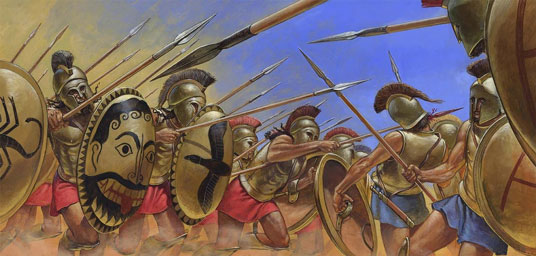
Justice Reconsidered
I read a passage from Nietzsche’s Human, All Too Human about justice. The words stayed with me as if barbed. Nietzsche refers to a passage written by Thucydides (431 BC), his account of the war between Athens and Sparta. Thucydides recounts a negotiation between Athenian ambassadors and representatives of Melos, a island community in the orbit of Spartan influence which had to that point maintained their neutrality in the war between Athens and Sparta. The reference is made in support of the criticism which Nietzsche brings to bear upon the conventional respect/honor which has accrued to the concept of justice. It is generally believed that justice is an unegoistic act. We’ve forgotten (decided to forget?) that justice originally meant enlightened self-preservation.
To set this scene, in the harbor of Melos thirty eight Athenian trireme warships were anchored. Heavy infantry and archers ready to go into action were aboard these ships. The future of Melos hangs in the balance by these negotiations. The Athenians make the offer that cannot be refused: submit and become a part of the Athenian empire, your people and possessions will not be harmed.
Thucydides, an Athenian historian, captures the exchange between the Melian commissioners and the Athenian envoys:
Melians: “…all we can reasonably expect from this negotiation is war, if we prove to have right on our side and refuse to submit, and in the contrary case, slavery.”
Athenians: “…we shall not trouble you with specious pretenses—either of how we have a right to our empire because we overthrew the Mede, or are now attacking you because of the wrong that you have done us—and make a long speech that would not be believed; and in return, we hope that you, instead of thinking to influence us by saying that you did not join the Lacedaemonians, although they are colonists, or that you have done us no wrong, will aim at what is feasible, …since you know as well as we do the right, as the world goes, is only in question between equal power, while the strong do what they can and the weak suffer what they must.”
The Melians pointed out that it was to the interest of all states to respect the laws of nations: “you should not destroy what is our common protection, the privilege of being allowed in danger to invoke what is fair and right….” They reminded the Athenians that a day might come when the Athenians themselves would need such protection.
But the Athenians were not persuaded. To them, Melos’ submission was in the interest of their empire, and Melos.
Melians: “And how pray, could it turn out as good for us to serve as for you to rule?”
Athenians: “Because you would have the advantage of submitting before suffering the worst, and we should gain by not destroying you.”
Melians: “So [that] you would not consent to our being neutral, friends instead of enemies, but allies of neither side?”
Athenians: “No; for your hostility cannot so much hurt us as your friendship will be an argument to our subjects of our weakness and your enmity of our power.”
When the Melians asked if that was their ‘idea of equity,’ the Athenians responded:
“As far as right goes…one has as much of it as the other, and if any maintain their independence, it is because they are strong, and that if we do not molest them, it is because we are afraid…”